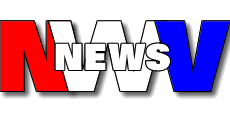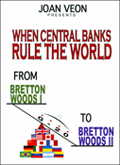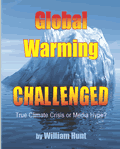OBAMA ADMINISTRATION TURNS CIGARETTE SELLING INTO ORGANIZED CRIME
By
NWV News writer Jim Kouri
Posted 1:00 AM Eastern
March 14, 2011
© 2011 NewsWithViews.com
"The more expensive cigarettes become, the more likely criminals will seek a way to capitalize on this de facto government prohibition by offering cigarettes at lower prices."
Federal and state governments have raised excise taxes on tobacco products to discourage tobacco use and increase revenues, and in doing so present smokers with a choice: pay exorbitant prices; quit smoking cigarettes; or seek a less expensive source.
Cross-border and illicit trade in tobacco products can undermine these government policy objectives by avoiding excise taxes and increasing the availability of these products to consumers at lower cost.
One of Barack Obama's first acts as President was to sign into law the Family Smoking Prevention and Tobacco Control Act passed by Congress, which directed Government Accountability Office to report on cross-border and illicit trade in tobacco products. Cross-border trade is defined in the Act as trade across a U.S. border, state, territory, or Indian country.
Many lawmakers and groups have long been working together to urge the passage of this bill that would provide the US Food and Drug Administration (FDA) regulatory control over tobacco products.
Illicit trade is defined in the Act as any practice or conduct prohibited by law which relates to or facilitates the production, shipment, receipt, possession, distribution, sale, or purchase of tobacco products.
Tobacco
products face varying levels of taxation in different locations, creating
opportunities and incentives for illicit trade. Cigarettes are taxed
at the federal, state, and in some cases, local levels.
According to industry representatives, taxes and other fees make up
significant components of the final price of cigarettes, averaging 53
percent of the retail price.
While the national average retail price of a pack of cigarettes was $5.95 in 2010, in New York City, a pack can cost up to $13.00 or more due to high combined state and city taxes. In contrast, a pack of cigarettes in Richmond, Virginia, can cost approximately $5.00, due to low state cigarette taxes there.
The tax differential between a case of cigarettes (typically containing 12,000 cigarettes) in New York City and Richmond is over $3,000, creating incentives for illicit trade and profits. Excise taxes and other fees on tobacco products can be evaded at numerous points in the supply chain.
Law enforcement officials claim that another incentive to engage in this activity is the fact illicit tobacco penalties are comparatively less severe than other forms of illicit trade. According to experts and literature reviewed by the Government Accountability Office, a wide range of schemes are used by different actors to profit from illicit trade in tobacco products, mainly through the evasion of taxes.
Schemes can range from individual consumers purchasing tax-free cigarettes from Internet Web sites, to larger-scale interstate trafficking of tobacco products, to smuggling cigarettes into the country by criminal organizations.
For example:
• A California distributor purchased approximately $1.4 million in other tobacco products (e.g., cigars and chewing tobacco) from an out-ofstate distributor, who disguised the shipments using falsified documents and black plastic wrapping. The California distributor then sold it to customers and failed to pay state excise taxes.
• A criminal organization attempted to conceal two containers of counterfeit cigarettes and pass them through Customs at the Los Angeles/Long Beach port by declaring them as toys and plastic goods.
• A manufacturer evaded Tobacco Master Settlement Agreement (MSA) escrow payments. The manufacturer underreported its cross-border sales to numerous states, including Virginia. By underreporting its sales to Virginia, the manufacturer evaded approximately $580,000 in escrow payments.
During the nine month investigation, Guang Ming Wang purchased a total of 31,980 cartons of untaxed cigarettes for $846,000 and also sold ATF 103,950 counterfeit NY State/City tax stamps for $4,000. After the undercover sales of cigarettes, both Wang’s were observed by agents unloading the contraband at two locations, 144-05 29th Road and 135-06 62nd Ave. in Queens. Federal search warrants were executed at both locations after the arrests.
The cartons sold to Wang contained a total of 319,800 individual cigarette packs, which at a price of $10 per pack had a retail street value of more than $3.1 million dollars in New York City. The counterfeit New York tax stamps are worth $4.25 each, bringing their street value to over $440,000. It is estimated that the defendants conspired to deprive New York State and City of at least $1.8 million dollars in tax revenue through their actions.
Ironically, while the ATF were arresting the Wangs, the U.S. House of Representatives overwhelmingly voted in favor with a strong bipartisan majority for the second time since last July to pass the Family Smoking Prevention and Tobacco Control Act (HR 1256).
“So now we have two federal agencies involved in cigarette control. What’s next? SWAT teams tasked with going after ‘smuggled’ cartons of cigarettes? The criminal code being revised to include citizens who buy cheap cigarettes from pushers?“ quips a New York City detective.
| Subscribe to the NewsWithViews Daily News Alerts! |
“All we are doing is collecting more tax revenue and creating a new class of criminal activity,“ he added.
“What we are witnessing is a slippery slope. What’s next? Replicating [New York City’s] Mayor Bloomberg’s attack on trans-fats? Children denied cookies during cookie time in kindergarten? Slowly, the government is sticking their noses in citizens’ business, They’re trying to micro-manage our lives,“ notes Mike Baker, a conservative political strategist.
“The liberals love telling Americans they don’t want the government in their bedrooms, but apparently every other room in the house is up for grabs,“ Baker added.
© 2011 NWV - All Rights Reserved











 Share
This Article
Share
This Article






